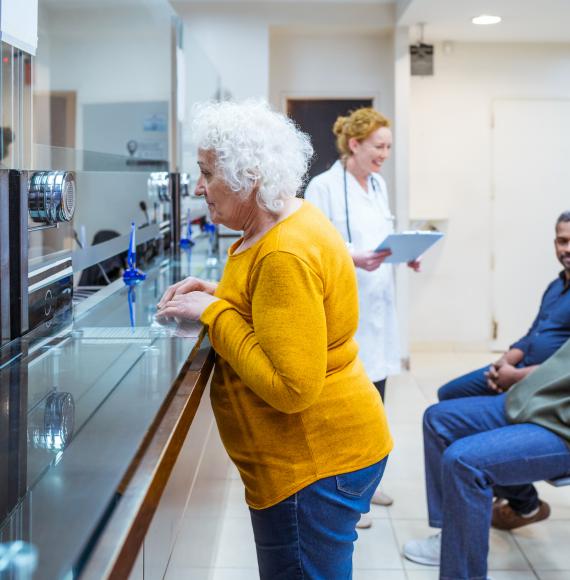Last week the NHS was widely described as providing a ‘Covid-19 only’ service for much of the last few months. Frontline NHS trust leaders are frustrated and disappointed at this description as it is untrue, unfair and potentially dangerous.
It is untrue because local hospital leaders were only formally required to pause non-urgent services for a period of two weeks, between April 15th and April 29th, when the impact of the virus on the NHS was at its peak. Even at the height of coronavirus, for every one Covid-19 patient in hospital, there were two non-Covid inpatients being treated for other conditions. More than three million urgent tests and checks were provided over the pandemic and 3.6 million people were treated in A&E. The NHS has continued to deliver, on average, 1,800 babies a day every day and, although cancer referrals did drop, 65,000 patients started treatment for cancer during the pandemic – 14% fewer than the same three months last year.
And that’s just hospital activity. Mental health trusts, for example, were in contact with 282,000 children and young people in April 2020 – the highest monthly figure on record. Community providers played a huge role in supporting the safe discharge of medically fit patients to create 33,000 hospital beds for Covid patients, alongside their existing casework. Ambulance services continued to treat road traffic accident and heart attack victims, taking more than 1.7 million calls between April 1 and June 30. And, during April, the peak month of the pandemic, more than 16 million GP appointments still took place.
In addition, frontline NHS staff have gone to extraordinary lengths to redesign services to ensure that non-Covid patients can be treated effectively, despite the need to observe social distancing rules. GPs undertook nine million remote consultations in June. Over 550 urgent dental centres were established across the country to provide emergency care during the pandemic.
The NHS did have to prioritise patients on the basis of clinical need, as it always does, to cope with the first Covid-19 surge. Some treatments had to be delayed. This was disruptive and distressing for those patients and, for some, could have a significant impact. It will take some time to assess the full extent of that impact. But this is a global phenomenon, as a World Health Organisation report on the 30 June comparing how 163 countries delivered non-Covid services during the pandemic, made clear. Unsurprisingly, the report showed that the more severe the outbreak of the pandemic was in a country, the more that routine services were disrupted. But prioritising treatment in this way is completely different to last week’s description of the NHS offering a “Covid-only service”.
Trust leaders are also clear that the “Covid-only service” description is unfair because it ignores the efforts of hundreds of thousands of their frontline staff who went to extraordinary lengths to keep the NHS open for ordinary business whilst coping with the worst global pandemic in a century. For trust leaders, the efforts of their staff treating non-Covid patients over the last few months were just as important as those who treated Covid patients. Dismissing their work, by implying that it didn’t exist, is just plain wrong.
Most worryingly, the use of “Covid-only” to describe the service the NHS has been providing over the last few months is also potentially dangerous. It gives the impression that when the NHS is under pressure from Covid-19 there is little or no point in patients presenting themselves for diagnosis or treatment because the NHS will be unable to care for them. Experts commenting at the weekend on the significantly higher number of deaths in private homes, compared to the five year average, argued that these figures show how vital it is that patients seek help and advice when they need it. The NHS can’t do what it’s supposed to do if patients don’t come forward when they’re ill.
That’s why all of us in the NHS have been working so hard to show that the service is, and always has been, open for business to Covid and non-Covid patients alike and that those who need treatment should seek it. Arguing that the NHS has provided a “Covid-only” service over the last few months sends precisely the opposite message to patients.
There will always be those who seek to attack the NHS on ideological grounds. Some are also seeking to mobilise the fact that the NHS did, understandably, have to prioritise limited resources at the height of the pandemic. But we owe it to frontline NHS staff to be accurate, proportionate and evidence based in how we describe that prioritisation. As far as trust leaders are concerned, describing the NHS as a “Covid-only service” over the last few months clearly fails those tests and should not, therefore, be used again.



















